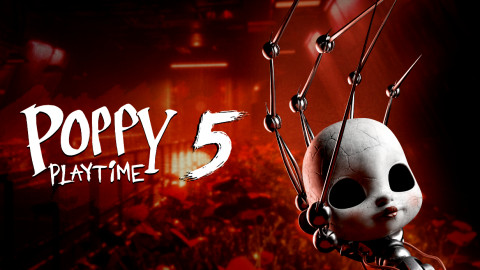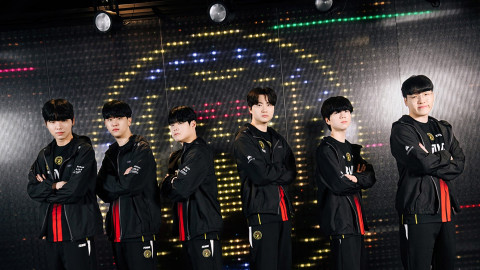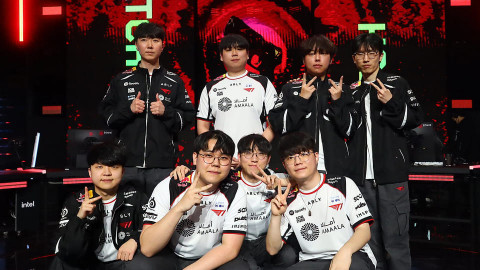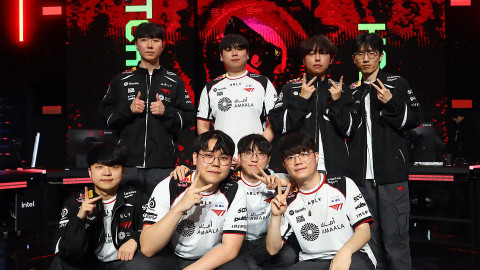
Disclaimer : The following article was written freely based on the author's opinion, and it may not necessarily represent Inven Global's editorial stance.
The vast majority of the games on my personal “best of” list are titles that I have played several times. I return to Halo: Combat Evolved every few years so I can remember how groundbreaking Bungie’s shooter was, even if I already know all of the plot points by heart. Super Mario 64 is a permanent classic for me, as is Star Fox 64 – I’ll never get tired of returning to the games that I grew up with, and beyond nostalgia, their simple 3D gameplay still holds up perfectly well.
But not every game is like this. In fact, some of my most beloved gaming memories are with stories I never want to experience again. They’re stories cemented in my brain, and they’re experiences that I wouldn’t be able to replicate if I just restarted the games. For the most part, these are games that I have actively avoided replaying as a result simply so I can remember the feeling of joy, surprise, and sadness that I felt while playing them for the first time.
Spoilers for BioShock Infinite to follow!

Up until a few days ago (more on that in a moment), my favorite video game was BioShock Infinite. It didn’t even take a second of deliberation – whenever someone asked me for my favorite game, I gave them the same answer, and the reason was simple. It was the first game I had played that managed to leave me astonished as the credits began to roll. For hours, protagonist Booker DeWitt had been in an uphill battle against the religious radical Zachary Comstock, with seemingly no way to defeat the patriarch and put an end to the destructive city of Columbia. His relationship with Elizabeth, a girl he was tasked with rescuing, was even less clear than when he initially arrived in the city, and his presence had made Columbia’s citizens’ unquestionably worse off than before. The music had begun to change. Booker had entered Comstock’s enormous airship. There was no time left to waste: I needed answers.
In just a few minutes, I got them. Or rather, I got one answer. In the game’s final moments, it was revealed that Booker had become Comstock in an alternate reality, setting all of the events in the game in motion. Elizabeth was his daughter, given up to Comstock after a poor bet, and only by drowning himself before a baptism – the moment in which the timelines split and he became Comstock – could Booker reverse what had happened.
I was shocked. I actually shouted, “what!?” at my television, then turned the game off and stared at a wall. How could the game have kept this a secret to me for so long? How could I not have noticed? Had the writing been on the wall the whole time?

As it turned out, the writing had been on the wall. I returned to BioShock Infinite two times after my initial playthrough and was acutely aware of every clue the game had given out. Booker’s “AD” tattoo. His role at the baptism. Comstock’s “false” assertion that he took part in Wounded Knee. It was interesting to go back and see what I had missed, but it was impossible for me to ever experience the excitement of my first time with the game. Instead, I did it vicariously, introducing friends and family to the story so I could watch their heads explode.
This weekend, I decided that I would take a different approach with my new favorite game, Nier: Automata. I’ve sung the praises of Yoko Taro’s latest masterpiece before, as have others on Inven Global, but I hadn’t yet reached the conclusion of the game’s “true” fifth ending yet. When I finally did and the beautiful song “Weight of the World” kicked in, I was overcome with emotion that I have seldom experienced in any medium before, let alone video games. I was simultaneously crushed and hopeful, and almost instantly decided to go back and research the story of the original Nier and its connection to the Drakengard series so I could better understand what I just experienced. I even watched a game playthrough by a few of the voice actors in order to pick up some extra insight on the characters’ personalities and motivations – I was becoming the geeky super-fan that I typically roll my eyes at.

Over the course of my more than 20 hours with Nier: Automata, my expectations had been consistently subverted, but this wasn’t limited to major plot points. Constantly shifting gameplay genres and even protagonists, it was impossible for me to predict what would happen next. Instead, I just had to stay along for the ride and hope that my level of surprise never faded. It didn’t.
I could certainly choose to experience Nier: Automata again, completing the side-quests that I had missed on my first time through, but it would be bundled together with content that I had already experienced in a way that couldn’t possibly be topped. The beauty of video games is that you have a role in the story. The decisions I made, both positive and negative, shaped the story in a way that was unique to me, and altering that with existing knowledge on a subsequent playthrough couldn’t possibly enhance my already lofty opinion of the game.
Perhaps my views will change as I take some time away from the game and begin to try all-new experiences again. Perhaps my frustration with the rote mechanics and stories of “lesser” games will encourage me to return to the only game to continuously impress me from the opening title screen to the closing credits. But the only aspect of Nier: Automata that I value more than actually playing it is my memory of doing so. The sense of simultaneous dread and joy and the surprise I had that a game of this significance could actually be released by a major publisher in 2017 can’t be replicated. I can’t go back, because it will never be the same. Now, I’ll just cherish those memories and go searching for the next game to blow my mind.

Sort by:
Comments :0






